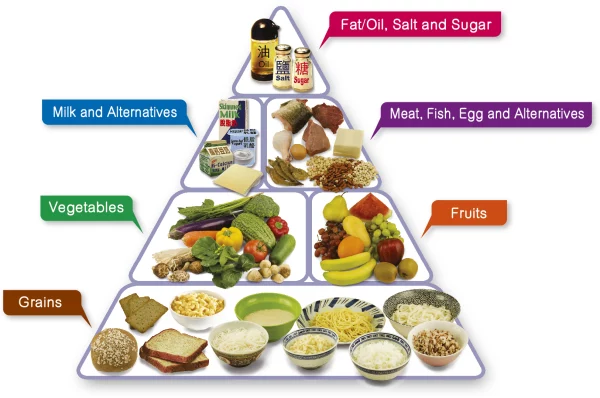Nutrition is a vital factor in maintaining human health and physical well-being. It not only encompasses a balanced diet but also involves supplying the body with essential nutrients such as protein, vitamins, minerals, and fats. Proper nutrition helps sustain energy, enhance immune function, and reduce the risk of chronic illnesses like cardiovascular disease, diabetes, and obesity.
A nutritional regimen profoundly affects all aspects of health, from physical development to the ability to fight off diseases. According to the World Health Organization (WHO), poor diets can lead to a myriad of health issues, ranging from malnutrition to complex conditions like hypertension or diabetes. “Nutrition not only impacts physical health but is also a critical determinant in improving mental well-being and reducing stress” (Harvard T.H. Chan School of Public Health, 2021). Therefore, ensuring a balanced diet is a prerequisite for maintaining a healthy body.
One common issue many people face today is a deficiency in essential vitamins and minerals. This is a key contributor to conditions such as fatigue, weakened immunity, and skin problems. For instance, vitamin D deficiency can impair calcium absorption, leading to osteoporosis. Furthermore, a lack of vitamin C can increase susceptibility to infections by weakening immune system activity. Proper supplementation of vitamins and minerals can enhance overall health and help the body function more effectively.
A study by the National Institute of Nutrition revealed that the ideal nutritional ratio for the body is 50% carbohydrates, 20% protein, and 30% fat.
In addition to adequate nutrient intake, another critical aspect is the balance between food groups. According to the National Institute of Nutrition, a well-balanced diet should comprise 50% carbohydrates, 20% protein, and 30% fat (National Institute of Nutrition, 2022). Maintaining this balance helps stabilize energy levels and supports various physiological functions. For example, fats are a rich energy source, but excessive consumption can lead to uncontrolled weight gain. Therefore, choosing healthy fats from sources like olive oil, chia seeds, or avocados is essential.
Another factor to consider in nutrition is the importance of water. Water not only helps maintain the body’s electrolyte balance but is also indispensable in digestion and nutrient absorption. “The human body requires approximately 2.5–3 liters of water daily to function optimally” (National Academies of Sciences, Engineering, and Medicine, 2020). Staying properly hydrated improves brain function, reduces fatigue, and enhances concentration.

In reality, changing lifestyle and dietary habits is not an easy task. However, if you start with small changes, such as increasing your intake of fruits and vegetables, incorporating fiber-rich foods, and reducing processed foods, you will notice significant improvements in your health. A scientific and reasonable diet not only helps prevent diseases but also helps you maintain a healthy and energetic body.
In conclusion, nutrition is not a simple matter, but understanding and adopting a proper diet will help you achieve long-term health improvements. Pay attention to every meal and gradually adjust your eating habits scientifically to achieve the health goals you desire.


HPX24h > Healthy Eating > What Is Nutrition? Why Is It Important For Health?
Tagged Articles
Essential Nutrition: The Golden Key to Comprehensive Health
Exploring How Microplastics Enter the Body and Affect Health
Why Is Nutrition Research So Complex?
Top Reads from This Category
Healthy Eating
Effectively Lower Blood Pressure with 4 Common Kitchen Vegetables
Healthy Eating
Understanding the Important Role of Carbohydrates in Health
Healthy Eating
MIND Diet – The Secret to Protecting the Brain and Preventing Cognitive Decline
Healthy Eating
The Reasons You Should Eat These Fruits During Pregnancy to Reduce Fatigue and Anemia
Healthy Eating
Vegan Diet: An Effective Weight Loss Solution or a Nutritional Challenge?
Healthy Eating
The Benefits and Risks of the Keto Diet: Is It Really Good for Your Health?
Healthy Eating
Why Do We Crave Sweets? A Scientific Perspective on Food Cravings
Discover New Topics
Health
Natural Remedies for Stomach Pain Every Parent Should Know
Healthy Eating
Sugar-Free Diet: Benefits, Risks, and What You Need to Know
Fitness
More Flexible – The Secret to Longevity?
Health
Forgetfulness Can Bring Unexpected Evolutionary Benefits
Animals
The Secret Behind Turtle Eggs Hatching at the Same Time: A Fascinating Reason
Fitness
Secrets to Building Muscle with Exercise: From Technique to Habit Maintenance
Science
Nanotech Technology to Destroy Blood Clots: A New Breakthrough in Stroke and Heart Attack Treatment
Animals
Explaining How Mosquitoes Can Fly Through a Rainstorm
Science
AI Can Simulate Evolution and Create Proteins – A New Opportunity for Breakthrough Medical Therapies
Science
Turning Snake Venom into Life-Saving Medicine: A Promising New Yeast Cell Technology
Healthy Eating
How Many Calories Do You Need Each Day to Maintain Optimal Health?
Science
New Artificial Kidney via Nanotechnology: A Revolutionary Alternative to Dialysis
Science
Why Do Adult Brains Continue to Generate New Neurons?